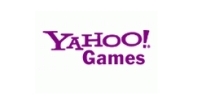Browsers
The answer as to why Firefox's release cycle is shortened: Mozilla love cakes
Wed, 03/23/2011 - 12:47 — John Riche
Firefox 4 has finally been released after an amazing number of Beta versions and 2 Release Candidates. It's about time! And while everyone has its idea on the number of Beta versions needed and how often a major version must be released - some find it reassuring that Firefox has had so many ones when others find it annoying and wish for a shorter release cycle - Mozilla said that Firefox 5 should be available in June 2011 after only 16 weeks of development. And we have been reminded why Mozilla has shortened its release cycle: they want more cakes from the Microsoft Internet Explorer team!
Google is actively pushing Chrome by providing a download link from the home page
Sun, 05/31/2009 - 13:48 — John Riche Up until now, the Google home page was meant to be as lite as possible. It only contained one image with the Google logo, some links to other Google tools, services and legal information. But that has changed recently as a new prominent image appeared to publicize the Google Chrome web browser. And this is quite huge as the overall advertisement's size is almost the same as the biggest element on the Google's home page: Google's logo itself!
Up until now, the Google home page was meant to be as lite as possible. It only contained one image with the Google logo, some links to other Google tools, services and legal information. But that has changed recently as a new prominent image appeared to publicize the Google Chrome web browser. And this is quite huge as the overall advertisement's size is almost the same as the biggest element on the Google's home page: Google's logo itself!
The Shortest Way to Detect Internet Explorer in Javascript
Thu, 01/29/2009 - 12:16 — John Riche![]() Through Ajaxian, the following 12 characters code seems to be the shortest way to detect any version of Internet Explorer, including IE 8. This is the result that came from a comment in a post from the Web Reflection blog. Very interesting!
Through Ajaxian, the following 12 characters code seems to be the shortest way to detect any version of Internet Explorer, including IE 8. This is the result that came from a comment in a post from the Web Reflection blog. Very interesting!
Biggest 10 Browser-Based Game Sites Ranked
Tue, 01/27/2009 - 17:38 — John Riche Gamasutra is running and interesting story about the biggest browser-based game sites where we can learn some pretty amazing numbers measured by ComScore such as "Total player time with browser-based online games increased 42 percent in 2008"... interesting!
Gamasutra is running and interesting story about the biggest browser-based game sites where we can learn some pretty amazing numbers measured by ComScore such as "Total player time with browser-based online games increased 42 percent in 2008"... interesting!
Internet Explorer 8 Release Candidate 1
Tue, 01/27/2009 - 10:50 — John Riche Even though Microsoft promised the final version of Internet Explorer 8 for last year, it is only today that the first release candidate of Internet Explorer 8 is available for public download in 25 languages for Windows Vista, Windows XP, and Windows Server customers. Changes between Beta 2 include platform completeness, reliability, performance, and compatibility improvements and security enhancements.
Even though Microsoft promised the final version of Internet Explorer 8 for last year, it is only today that the first release candidate of Internet Explorer 8 is available for public download in 25 languages for Windows Vista, Windows XP, and Windows Server customers. Changes between Beta 2 include platform completeness, reliability, performance, and compatibility improvements and security enhancements.
Congratulation WebKit for being the first to pass the Acid3 Test
Fri, 09/26/2008 - 10:04 — John RicheNot happy to have the fastest JavaScript engine of any web browser thanks to SquirrelFish Extreme, Safari just hit the 100/100 bar of the Acid3 test. "Acid3 is a test page from the Web Standards Project that checks how well a web browser follows certain web standards, especially relating to the DOM and JavaScript". Congratulations!
The (very funny) history of the browser user-agent string
Thu, 09/18/2008 - 15:14 — John RicheIf you haven't read it yet, here is the very funny history of browser user-agent string as narrated by Aaron Andersen of WebAIM. "In the beginning there was NCSA Mosaic, and Mosaic called itself NCSA_Mosaic/2.0 (Windows 3.1), and Mosaic displayed pictures along with text, and there was much rejoicing. And behold, then came a new web browser known as "Mozilla", being short for "Mosaic Killer", but Mosaic was not amused, so the public name was changed to Netscape, and Netscape called itself Mozilla/1.0 (Win3.1), and there was more rejoicing.
And Netscape supported frames, and frames became popular among the people, but Mosaic did not support frames, and so came "user agent sniffing" and to "Mozilla" webmasters sent frames, but to other browsers they sent not frames."
Google Chrome browser: a step further to the Google Operating System ?
Tue, 09/02/2008 - 14:54 — John Riche Google just cleverly announced the imminent release of their first web browser named Google Chrome through a very well done comic book presenting its philosophy and major features. Based on the Webkit rendering engine (KHTML, Safari, Adobe Air...), the upcoming browser clearly focuses on speed and security with isolated browsing tabs and a virtual machine executing the JavaScript, amongst other interesting features which can be discovered in the comic book.
Google just cleverly announced the imminent release of their first web browser named Google Chrome through a very well done comic book presenting its philosophy and major features. Based on the Webkit rendering engine (KHTML, Safari, Adobe Air...), the upcoming browser clearly focuses on speed and security with isolated browsing tabs and a virtual machine executing the JavaScript, amongst other interesting features which can be discovered in the comic book.
Sensational story or threatening Vista security hole ?
Fri, 08/08/2008 - 15:37 — John RicheIn what seems to be a sensational / tabloid article inspirationally named Vista's Security Rendered Completely Useless by New Exploit, Neowin reports that "this week at the Black Hat Security Conference two security researchers will discuss their findings which could completely bring Windows Vista to its knees. Mark Dowd of IBM Internet Security Systems (ISS) and Alexander Sotirov, of VMware Inc. have discovered a technique that can be used to bypass all memory protection safeguards that Microsoft built into Windows Vista. These new methods have been used to get around Vista's Address Space Layout Randomization (ASLR), Data Execution Prevention (DEP) and other protections by loading malicious content through an active web browser. The researchers were able to load whatever content they wanted into any location they wished on a user's machine using a variety of scripting languages, such as Java, ActiveX and even .NET objects. This feat was achieved by taking advantage of the way that Internet Explorer (and other browsers) handle active scripting in the Operating System."
Microsoft confirms IE 8 will ship this year
Fri, 07/25/2008 - 15:05 — John Riche According to ZDNet, Microsoft Senior Vice President of Online Services and Windows (what a mouthful), Bill Veghte, just told attendees of the Microsoft's Financial Analyst Meeting (FAM) that Microsoft will release the final version of Internet Explorer (IE) 8 to the Web "later this year".
According to ZDNet, Microsoft Senior Vice President of Online Services and Windows (what a mouthful), Bill Veghte, just told attendees of the Microsoft's Financial Analyst Meeting (FAM) that Microsoft will release the final version of Internet Explorer (IE) 8 to the Web "later this year".

Recent comments
15 years 7 weeks ago
15 years 7 weeks ago
15 years 7 weeks ago
15 years 7 weeks ago
15 years 8 weeks ago
15 years 25 weeks ago
16 years 49 weeks ago
16 years 50 weeks ago
17 years 14 weeks ago
17 years 14 weeks ago